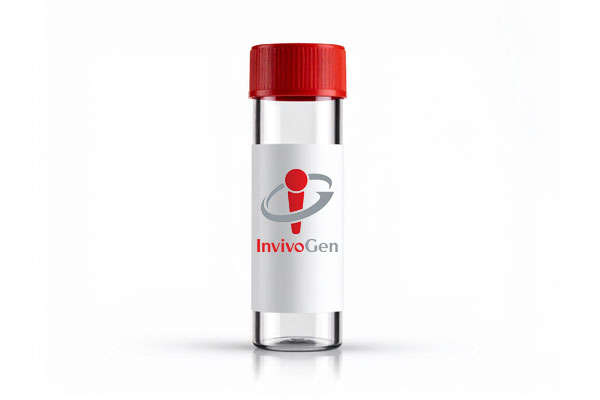
293/mTLR6
-
Cat.code:
293-mtlr6
- Documents
ABOUT
HEK293 clones expressing TLR6
293/TLR6 cells were obtained by stable transfection of HEK293 cells with a pUNO-TLR6 plasmid which expresses the murine TLR6 gene.
The control cell line of 293/TLR6 cells is 293/null.
Disclaimer: These cells are for internal research use only and are covered by a Limited Use License (See Terms and Conditions). Additional rights may be available.
SPECIFICATIONS
Specifications
Species
Human
Target
TLR6
Target species
Mouse
Tested applications
Screening of PRR agonists or inhibitors
Cell type
Epithelial
Growth properties
Adherent
Tissue origin
Human embryonic kidney cells
Antibiotic resistance
Blasticidin
Growth medium
Complete DMEM (see TDS)
Mycoplasma-free
Verified using Plasmotest™
Quality control
Each lot is functionally tested and validated.
CONTENTS
Contents
-
Product:293/mTLR6
-
Cat code:293-mtlr6
-
Quantity:3-7 x 10^6 cells
Includes:
- 100 μl Blasticidin (10 mg/ml)
- 1 ml Normocin™ (50 mg/ml)
Shipping & Storage
- Shipping method: Dry ice
- Liquid nitrogen vapor
Storage:
Stability: 20 passages
DOCUMENTS
Documents
293/mTLR6
Technical Data Sheet
Safety Data Sheet
Certificate of analysis
Need a CoA ?



